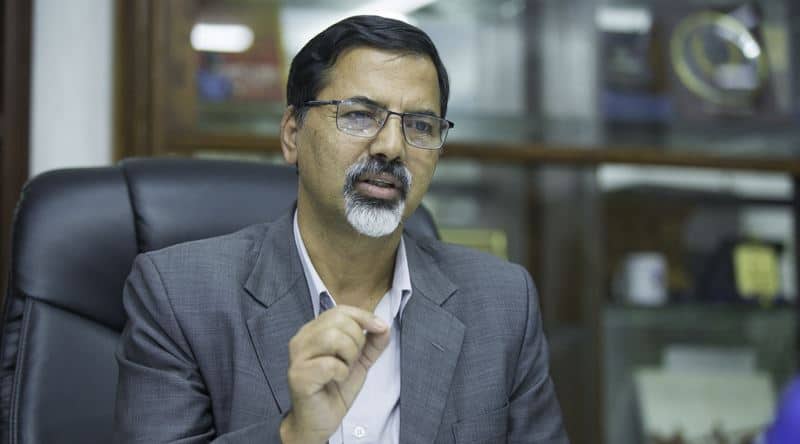

KATHMANDU: Amid growing internal discord within the CPN (Maoist Centre), Deputy General Secretary Janardan Sharma ‘Prabhakar’ has presented a four-point proposal, urging the party to convene a special general convention to address ideological confusion, organizational disorder, and declining credibility.
His proposal, made public through social media, comes at a time when tensions between Sharma and party chair Pushpa Kamal Dahal ‘Prachanda’ have escalated into a visible two-line struggle.
In his statement, Sharma criticized the top leadership for spreading rumors about a potential party split over the past two years.
He warned that these narratives have created confusion and mistrust among party members and the public, and called on cadres to remain alert and not be misled by such speculation.
He argued that fueling such rumors only serves to weaken the party further and risks dividing it from within.
Sharma reminded the party that, following province-level consultations last year, the central committee had resolved to hold a special general convention within six months—by December.
He emphasized that the time has come to focus the party’s internal debates on substantive issues and strategic reforms.
According to him, a special convention would help reorganize, strengthen, and institutionalize the party’s structure and direction.
One of the core points in Sharma’s proposal addresses the party’s deteriorating public image, which he says took a significant hit after the controversial two-point agreement.
He called for serious self-reflection and renewed commitment to core party agendas to rebuild credibility.
Sharma suggested that the momentum generated by past political campaigns, including those linked to the Postal Highway and the Mid-Hill Highway (Pushpalal Highway), should now be channeled toward a focused, agenda-driven discourse.
Highlighting the broader national context, Sharma said that the country, its people, and major political parties are all facing a severe crisis.
He argued that solutions lie in three major areas: constitutional amendment, economic restructuring, and comprehensive party reform.
He proposed that these changes are essential for guiding Nepal toward a socialism-oriented future as envisioned in the constitution.
Sharma further elaborated that economic restructuring would help realize the constitutional vision of socialism by introducing new standards in production, distribution, and inclusive development.
He added that through social and cultural transformation, a foundation for a self-reliant and socially just society could be laid.
Criticizing widespread misgovernance, corruption, legal manipulation, and growing disregard for public issues, Sharma noted that the people have grown deeply frustrated with the current state of affairs.
He emphasized that identifying core problems and implementing urgent reforms would be key to regaining public trust.
Calling for constitutional reforms, Sharma stressed the need for thorough debate and changes in governance structure, electoral systems, identity-based inclusion, and economic planning.
He believes these reforms will be instrumental in uniting the nation and restoring political stability.
Concluding his statement, Sharma asserted that a special general convention is now imperative to end the ideological vagueness, political indecision, and lawlessness plaguing the Maoist party.
He argued that the party must urgently develop a strategic plan that aligns with the aspirations of the younger generation and undertake deep restructuring to remain politically relevant and effective.